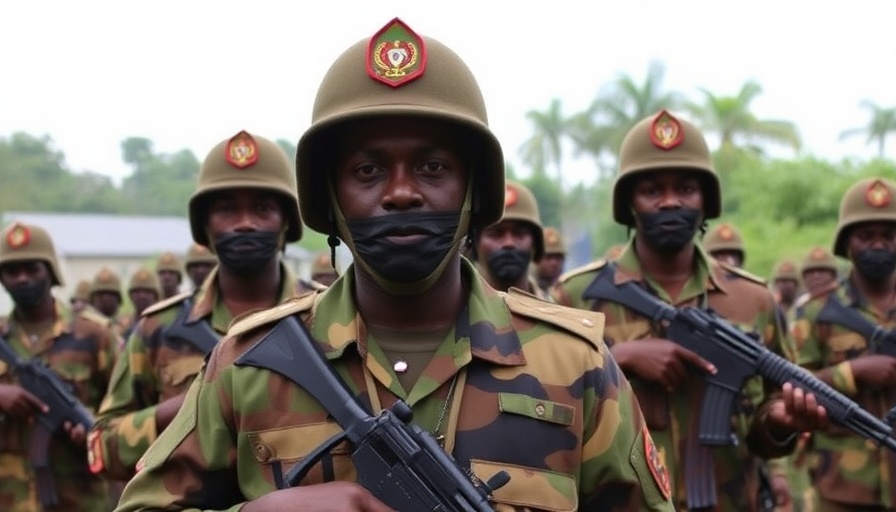
Disruption of Peace: M23 Rebel's Withdrawal and Its Implications
The recent withdrawal of the M23 rebel group from peace talks underscores the precarious state of affairs in the eastern Democratic Republic of Congo (DRC). Initially set to engage in dialogue in Luanda on March 18, this rebel coalition is now citing sanctions imposed by the European Union as the key reason for their pullout. The sanctions reportedly targeted key individuals, including military officers and political leaders linked to the M23, which the group claims hinders any potential for a constructive discussion aimed at peace. Corneille Nangaa, the M23 leader, decried the sanctions, stating they undermine dialogue and embolden Congolese President Félix Tshisekedi in his military engagements.
Understanding the Sanction's Impact on Dialogue
The sanctions from the EU—following extensive military engagements between M23 rebels and the Congolese army—ring alarm bells for diplomats and experts advocating for long-lasting peace in the mineral-rich regions of eastern Congo. The M23 rebels have reportedly made significant territorial gains, seizing control of strategic cities like Goma. These actions, combined with the EU's sanctions, create a volatile atmosphere that fuels tensions rather than fostering dialogue, causing a critical setback in peace-building efforts.
Political Landscape and International Relationships
Compounding the challenges to peace, Rwanda's relationship with Belgium has soured significantly, leading to a break in diplomatic ties following accusations of neo-colonialism. This geopolitical backdrop reflects a broader struggle, with approximately 100 armed groups vying for power and control within eastern Congo, a region rich in resources, yet plagued by conflict. As the Congolese military continues its offensive against the M23 rebels, the international community watches closely, with calls for accountability regarding the severe humanitarian crisis that has displaced millions.
Potential Consequences and Future Predictions
The sidelining of M23 highlights not just a failure of immediate diplomatic efforts but also raises questions about the long-term stability of the region. Analysts predict that as tensions escalate, the potential for renewed conflict is high, which could further destabilize not only the DRC but also its neighbors. Furthermore, the EU's strategic sanctions may invite a counterproductive cycle of militarization rather than fostering a peaceful resolution.
A Long-Standing Cycle: From Talks to Turmoil
The current situation reflects a long-standing pattern in African politics where international interventions often backfire. By imposing heavy-handed sanctions without considering the local political landscape, international actors may inadvertently exacerbate the conflict they seek to mitigate. This complexity suggests that future interventions must be cautious, considering both immediate tactical realities and the broader context of Congolese governance.
Engagement is Crucial: The Path Forward
If peace is to be achieved in this region, all parties, including the international community, must reevaluate their strategies. Policymakers and think tanks focused on African dynamics should advocate for a balance between enforcement and negotiation, emphasizing dialogue that directly includes local perspectives.
While the current setback in talks is discouraging, fostering nuanced diplomatic approaches could provide a fertile ground for future resolutions. The call for a comprehensive understanding of the interconnected political and social factors at play is more crucial now than ever as we navigate the complexities of Africa's geopolitical landscape.
 Add Row
Add Row  Add
Add 


Write A Comment